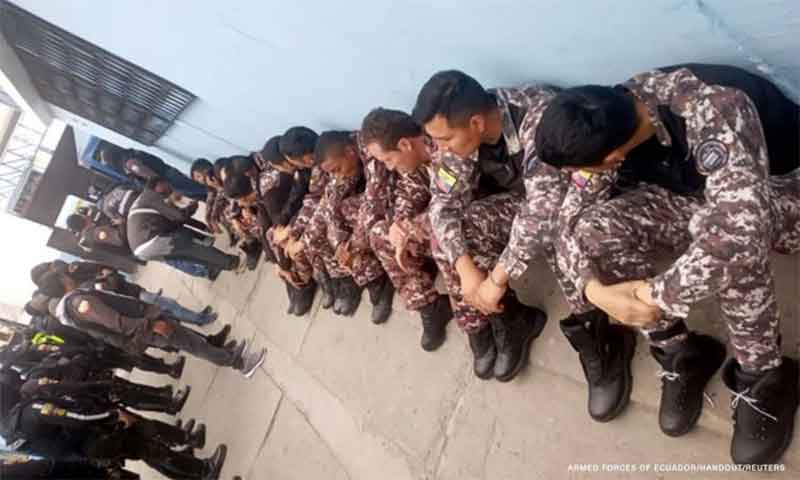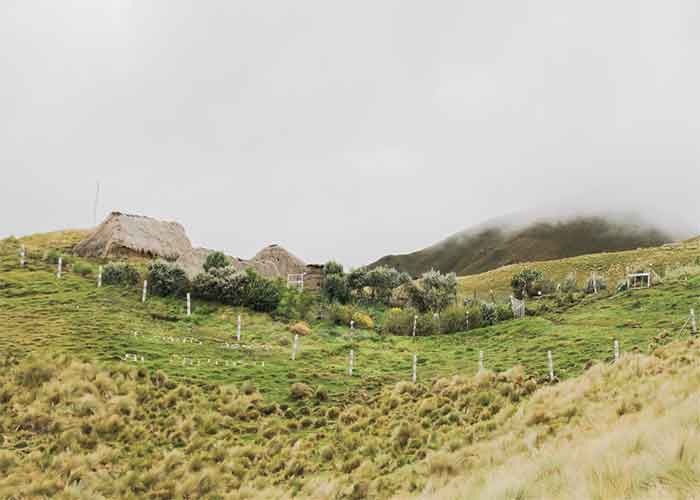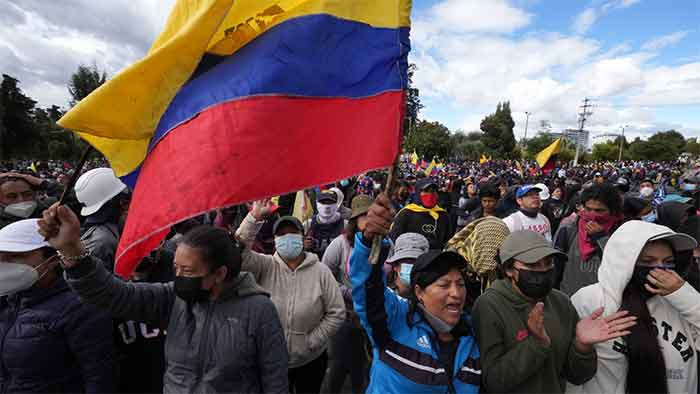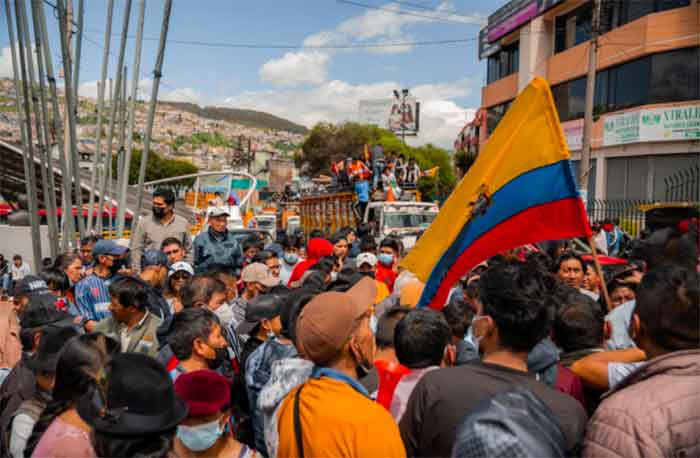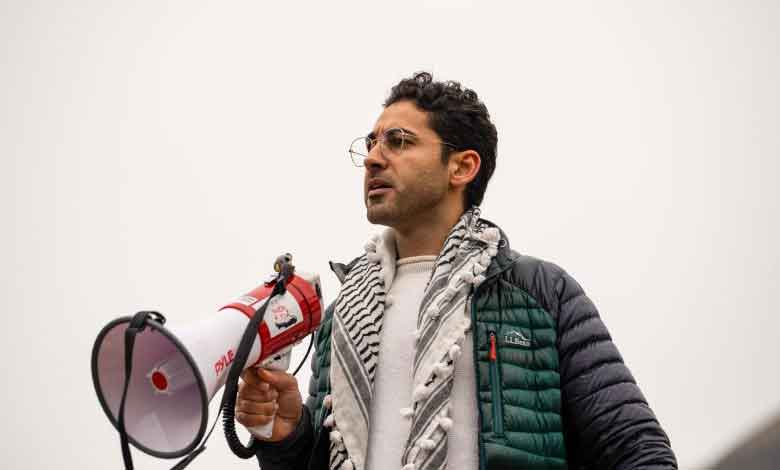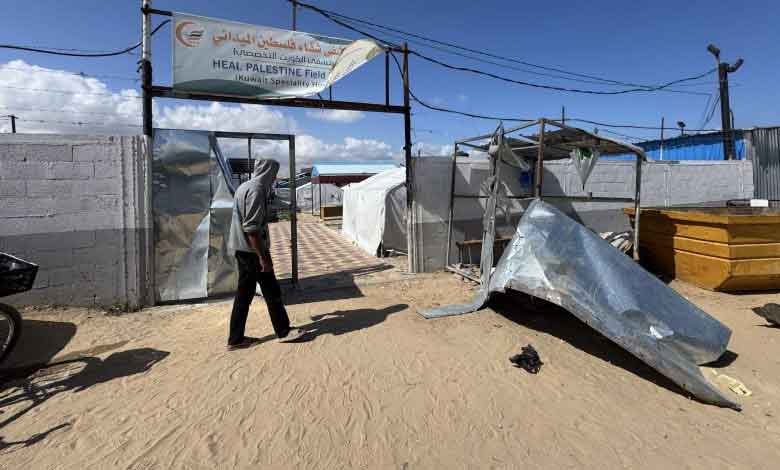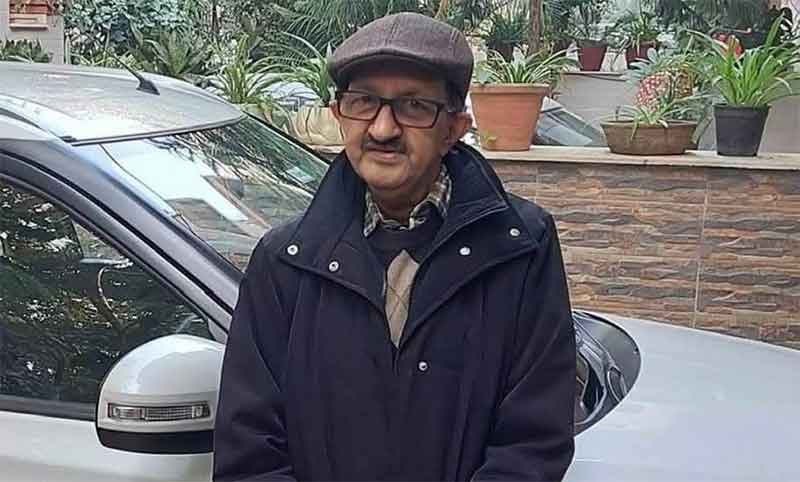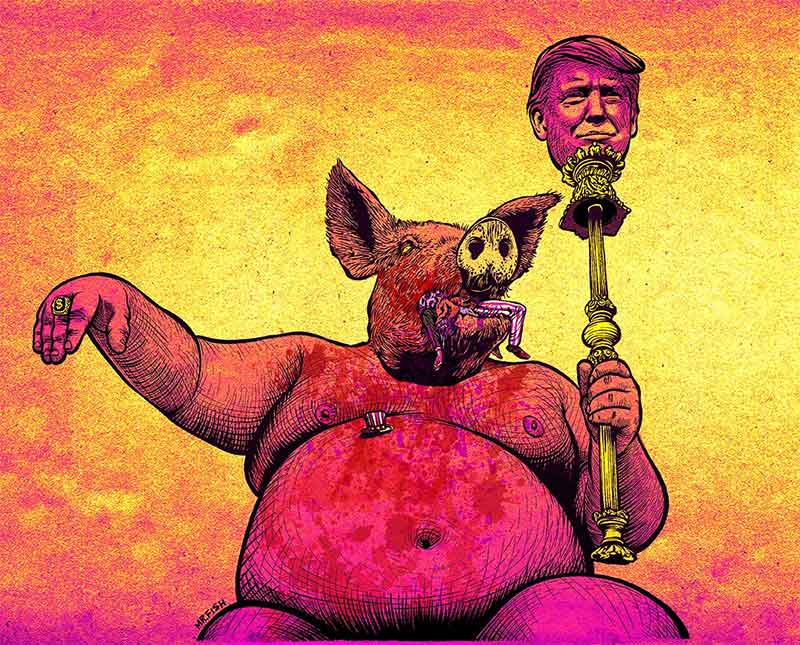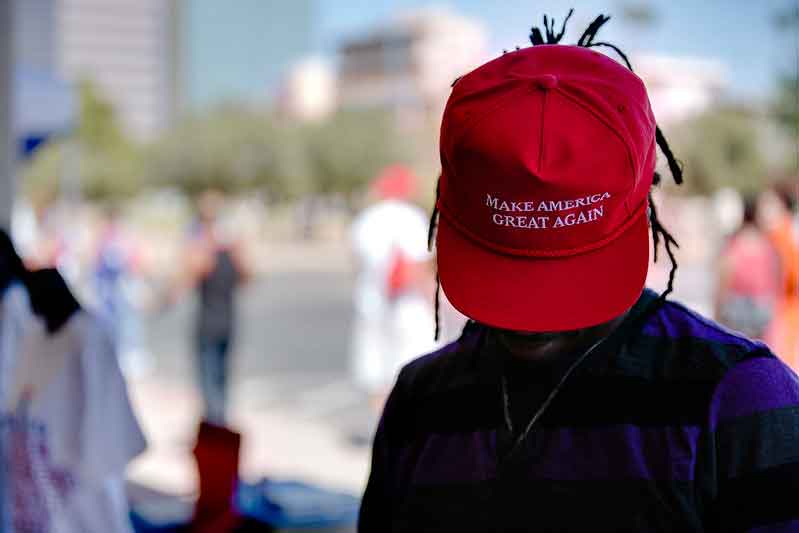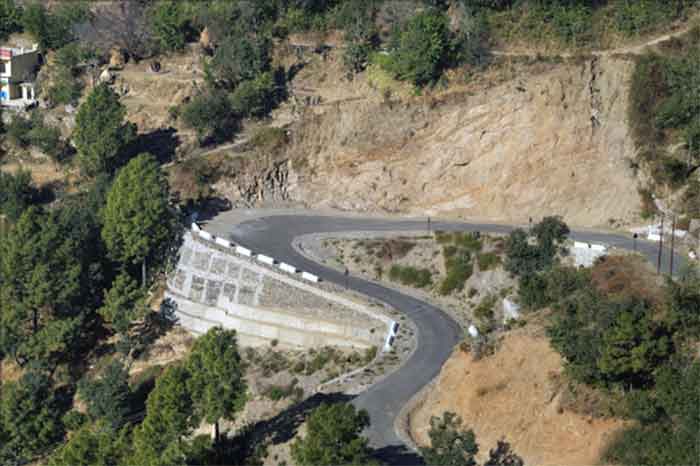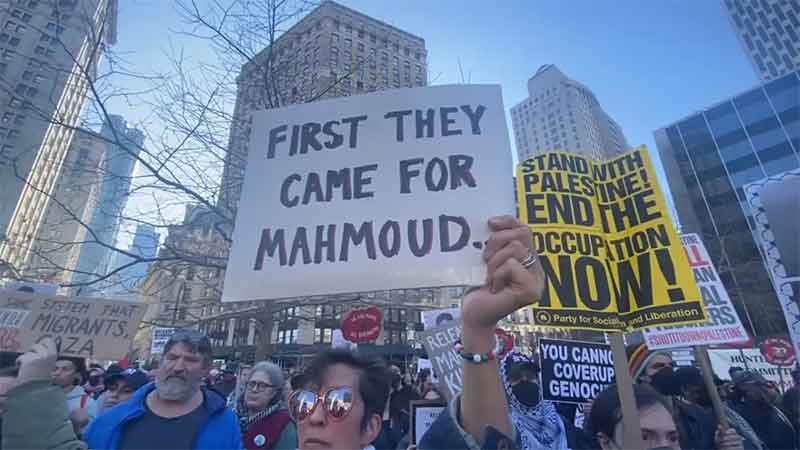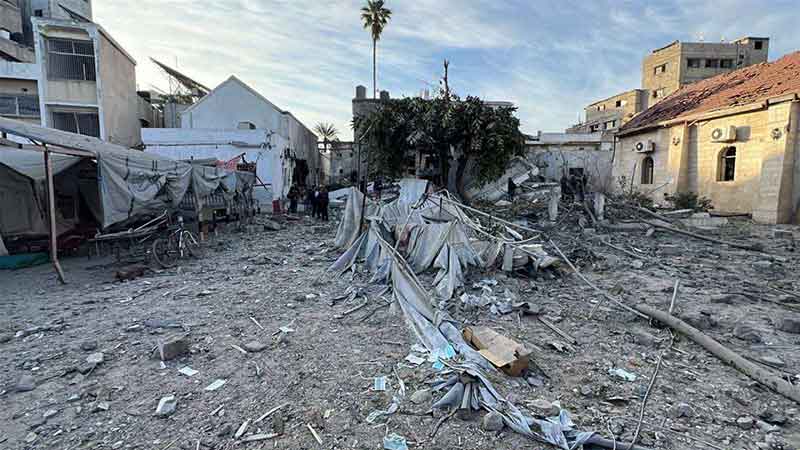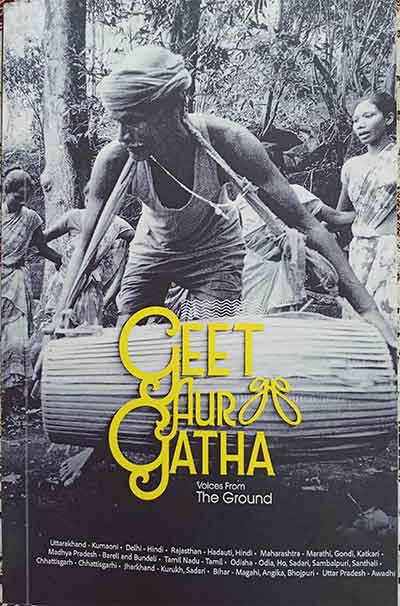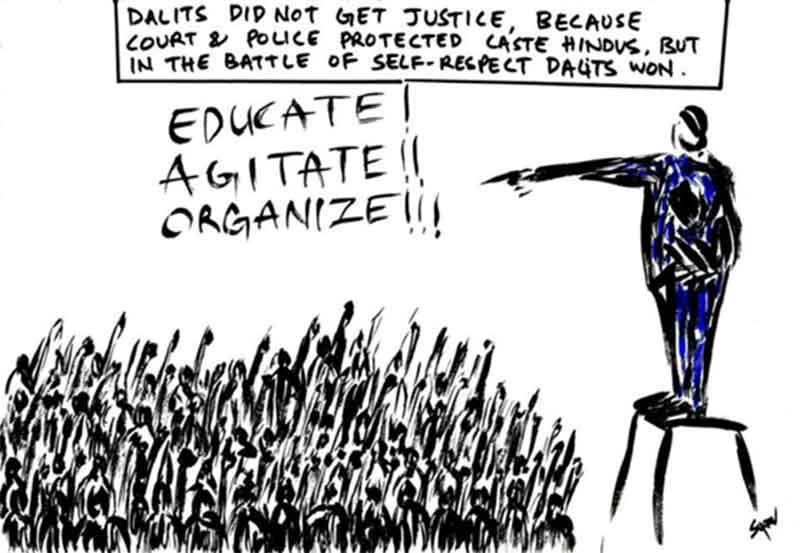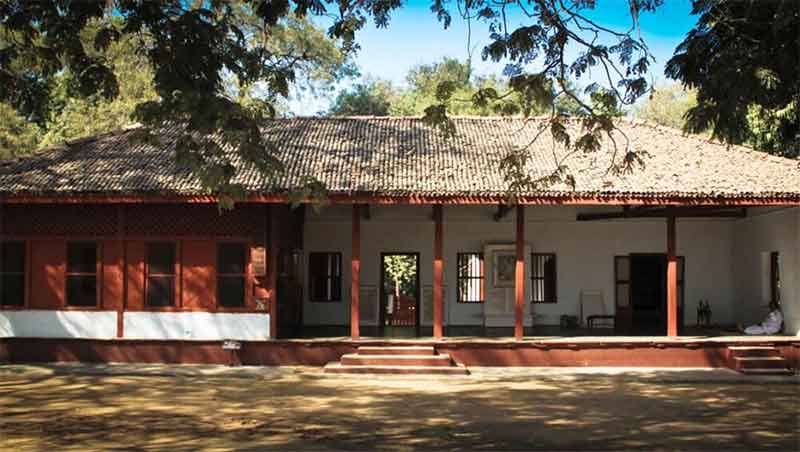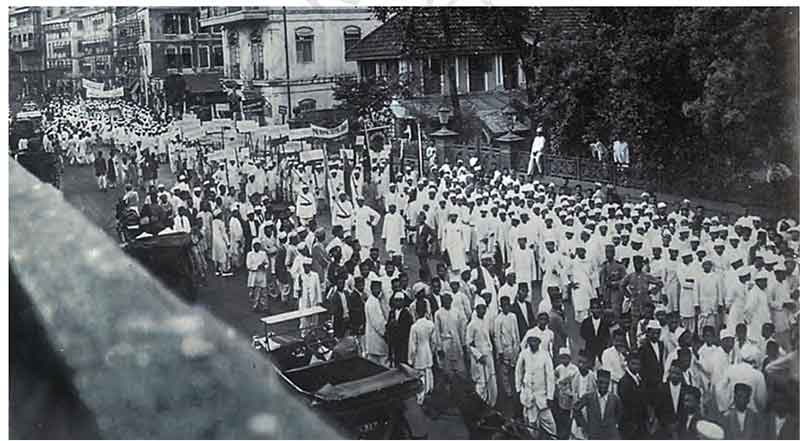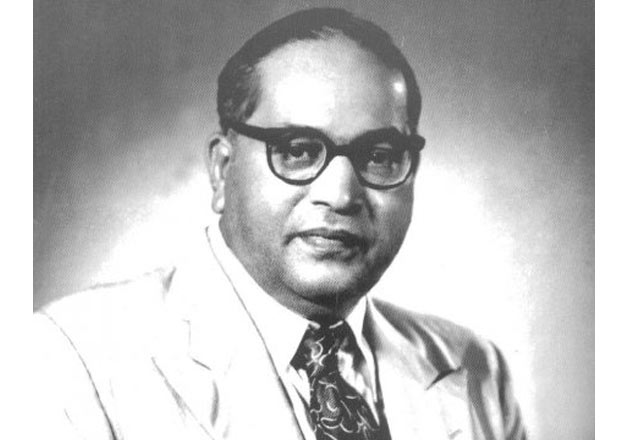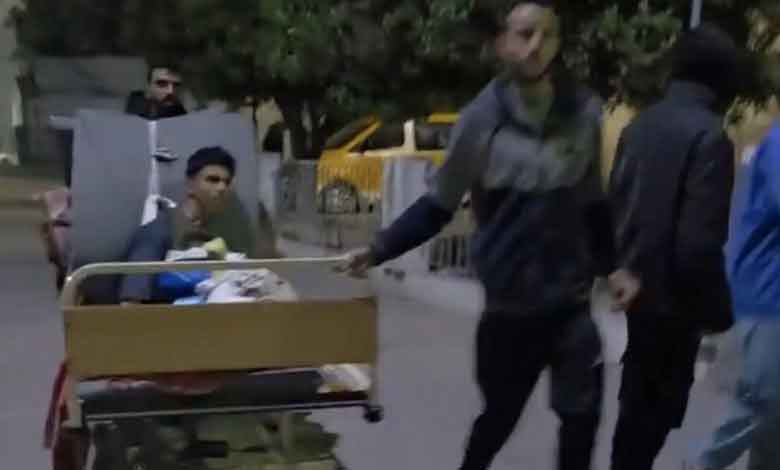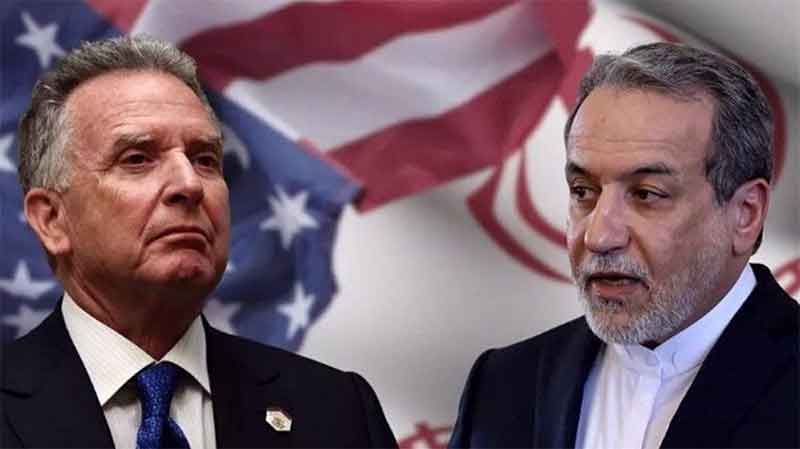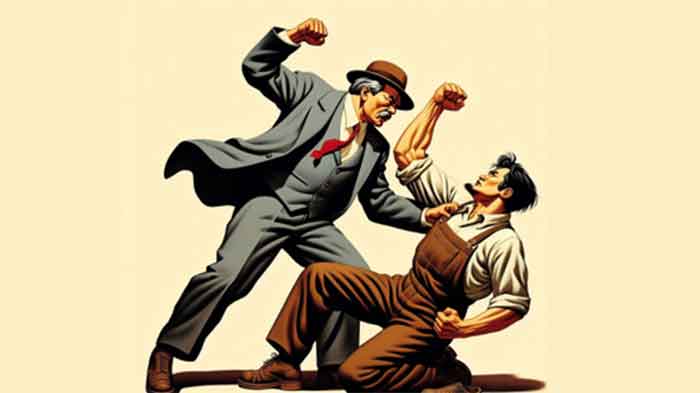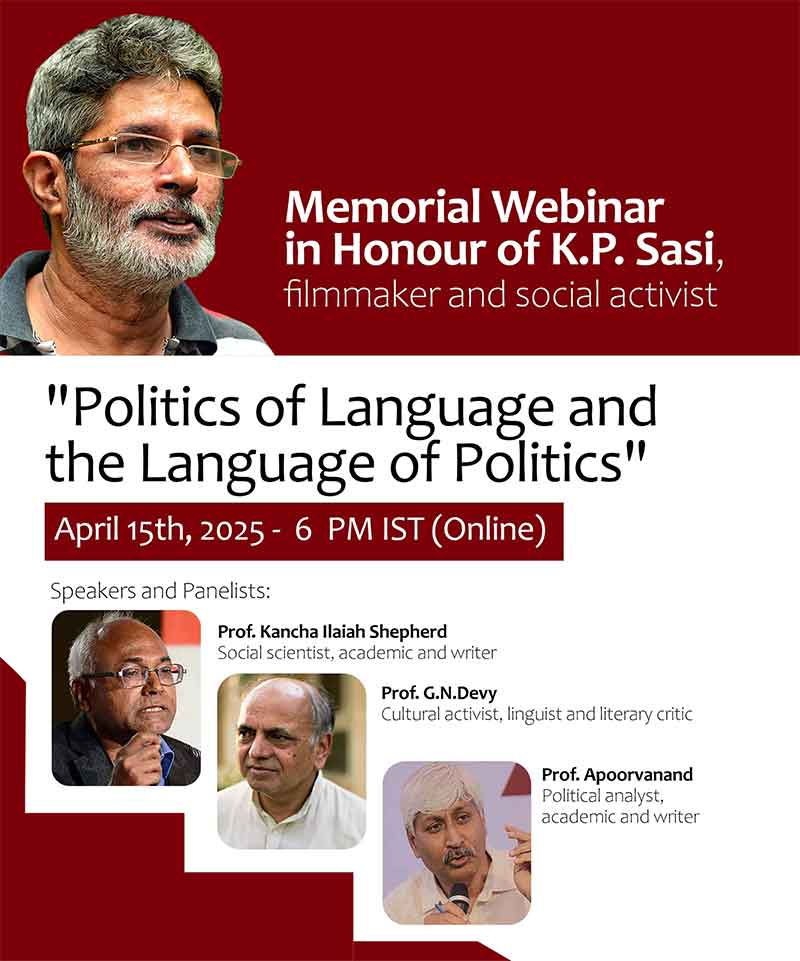
The Constitutional referendum held this April 21 in Ecuador has been a last resource that the country’s reactionary government has resorted to.
Although one might think of a referendum as a democratic instrument, the way in which the right wing promotes them is the opposite: the questions asked are not framed on the basis of any popular demand. Deception is the basic characteristic and the referendum was not carried out on the request of the majority of the population, but on behalf of the few who hold wealth and power.
The referendum was also in opposition to constitutional principles as it sought rolling back of fundamental rights of the people themselves. The referendum campaign, including that of the large media outlets, is totally unbalanced and designed to hide issues that really matter – such as unlawful profits of big businessmen. Nor did it deal with the strengthening of sovereignty of Ecuador as an independent country, but rather tightened the chains of imperialism around it.
In this way, once again the right wing perverts democracy. It turns it into a circus, a manipulated contest of words and even bloody repression, according to its own interests. The word “people” is only an adornment as the calls to the slaves to defend their masters have always been.
This is how the consultation called by Ecuadorian President Noboa was presented, which included referendum questions to amend the Constitution and to change laws. He did it in a context of increased violence by drug warlords, taking advantage of the public anguish that comes from criminal violence. He has decreed an “internal war” against the criminals, among which he has also included those who defend their territories from mining transnationals. The real aim is to seek endorsement for his re-election and for concentrating power to benefit business monopolies in the longer term.
The consultation is not about the policies of the State, about neoliberalism and its effects, economic policies and the energy crisis, nor about the shameful international policy that includes the absence of criticism of the genocide in Gaza or the contempt for international laws, which was evident in the recent attack on the Mexican embassy. On issues like these, those below are simply not authorized to have an opinion – so these questions were not included in the referendum.
The referendum questions
The questions presented can be put in three groups: those that were not needed because there are already laws to deal with such issues; those that need not be put to referendum because there are related laws still being debated in the Assembly; and those that are meant to change the Constitution to expand business profits and put the country at the feet of international arbitrations.
In the first group are some of the most widely disseminated questions that are claimed to be required to end drug trafficking and entry of traffickers into all State institutions. The question asks for public support to allow the Armed Forces to intervene, together with the police, in internal security, something they have already been doing without debating the doctrine of the “internal enemy” and the risks of militarizing security, a vision also very dangerous for the country’s impoverished populations. The same goes for the question of gun control, which the Armed Forces already legally execute.
Among the second group are the questions that correspond to the so-called “penal populism” that seeks greater public vindictiveness, even though there is no evidence that this reduces crime and its effects, It is proposed to increase penalties, give out sentences without reduction of penalties (making rehabilitation impossible) and give the weapons captured from criminals to law enforcement. A constitutional amendment is also proposed to allow the extradition of certain convicts, which is falsely presented as expelling all criminals from the country. It is worth remembering that on these issues Noboa is copying the line of Nayib Armando
Bukele, President of El Salvador, who announced similar laws and prisons as part of his ‘war against crime’.
To these issues, the referendum adds questions referring to parliamentary debates underway for the confiscation of properties of those accused of terrorism and corruption, as well as another on a resolution of the Constitutional Court that allows it to amend constitutional guarantees to prevent their abuse and preventing release of criminals with economic or political connections. These two, being important issues, must be understood within the framework of penal populism, of the struggles between gangs at the highest level and the risk of misuse.
In any case, all these questions were presented mainly as if they were the only way to face the security crisis and the anguish of a citizenry worried about the growing control of drug trafficking over different State agencies and suffers the results of daily violence. With this, the government sought a victory to present as popular support for its re-election.
But there are two questions that relate to changes in the living conditions of the country and its people and on which popular organizations and leftist parties focused their attention. The intended constitutional changes refer, first, to oblige Ecuador to submit to international arbitration bodies, affecting national sovereignty and the rights of the country and creating greater guarantees for transnational capital with which large monopoly groups are linked. And, the second question is related to deepening job insecurity by legalizing forms of work by the hour, trampling on labour rights in practice. Another question is aimed at provoking greater employer profits by not recognizing rights such as social security and, at the same time, proposing a massive wage reduction.
The results of the referendum
After an official campaign that avoided debate, keeping limited dissemination at the social level, the true meaning of the questions and their annexes was left out of the knowledge of a very high percentage of voters. The mainstream media, committed to supporting the regime, proceeded in the same way, insisting on only one option: voting yes.
The first information, from an exit poll contracted by the government and from the quick count of the National Electoral Council, already indicates a clear positive vote higher than 60% in favour of the questions in which greater fight against organized crime and security is offered and that are also linked to popular rejection of corruption in high places. In the two fundamental questions, however, the option for No wins and exceeds 60%, with more than 25% above what was proposed by the government. In addition, abstention would be close to 28% despite the fact that voting is mandatory in Ecuador.
Under these conditions, it is demonstrated that the Ecuadorian people do not trust the Noboa government. In the questions that sought the application of neoliberal policies and that, due to the campaign of popular organizations, were the most discussed and analyzed, the defeat of the right and its government is very serious. The government campaign was also loaded with false messages and promises to get out of the crisis, but it did not convince the public. With infinitely fewer resources, the popular organizations achieved a victory over lies and deceit, over the neoliberal model and its recipe book.
Distrust comes as a result of the government policies implemented so far, although Noboa claims not to be from the extreme right despite his background of belonging to the largest business group. However, the people reject the ineffectiveness that forces labour suspensions due to power cuts, the absence of necessary public works, the increase in VAT from 12 to 15% with the consequent rise in prices, the educational and health crisis, the inability to stop the violence even with the presence of the military on the streets, delays in payments to municipalities. That the Noboa family’s business group does not pay 88 million dollars owed in taxes, provides clear evidence of what this government really is. Although these were not central issues in the voting decision, they were undoubtedly present in the thinking of a high number of voters.
On the other hand, the governability agreement between Noboa, Rafael Correa and Nebot (extreme right), which until recently worked at the parliamentary level, is broken after the invasion of the Mexican embassy and the capture of former vice president Glas, generating greater legislative difficulties. His lack of capacity for dialogue and political negotiation is also notorious. The government is also weakened there.
Under these circumstances, the social victory in the most important questions changes the political landscape and opens up the possibilities of a reinforcement of the positions contrary to neoliberalism and favourable to popular rights. Unity is presented as possible and necessary to face the current contradictions and those that are coming in the short term.
Faced with a government that is weakening, the result of Ecuador’s referendum speaks of a people that can act adequately on fundamental issues. This has to be followed up by reinforcing the leftward trend and towards true change.
Prof. Edgar Isch is an academic and former Minister of the Environment of Ecuador. Associated with the Latin American Center for Strategic Analysis (CLAE, www.estrategia.la)

